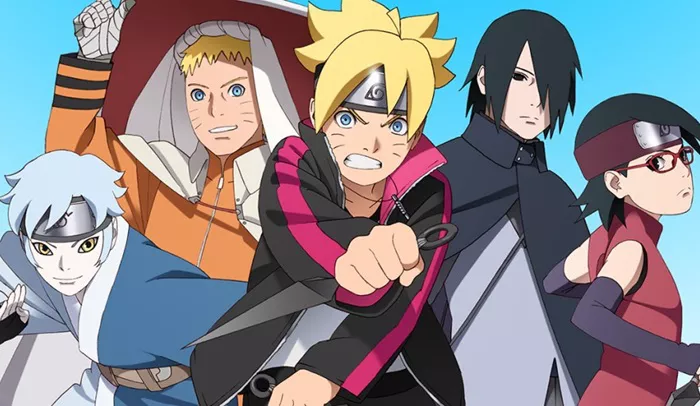Boruto: Naruto Next Generations is a popular anime and manga series that serves as a sequel to the beloved Naruto franchise. Since its debut, fans have been asking one major question: “Is Boruto canon?” To answer this, we need to delve into the concept of “canon” in anime and manga, and explore the relationship between Boruto and its predecessor, Naruto.
What Does “Canon” Mean in Anime?
The term “canon” refers to the official continuity or storyline of a series. Anything considered “canon” is part of the main storyline and accepted as the true narrative. This can include events in the manga, anime, or any other officially recognized medium related to the franchise. If an episode or chapter is not directly connected to the central narrative, it may be labeled as “filler” or non-canon.
The Transition from Naruto to Boruto
Naruto concluded in 2014 with the completion of its manga, which was followed by the Naruto: The Last movie and the Boruto movie in 2015. Boruto, the son of Naruto Uzumaki, became the focal point of the next chapter in this long-running saga. While the Boruto: Naruto Next Generations anime and manga are set in the same universe, there is significant debate about whether Boruto’s story fits within the “canon” timeline.
Is Boruto Canon to the Naruto Series?
The answer is not as straightforward as fans might hope. There are two main sources of Boruto’s story: the Boruto manga and the Boruto anime. The manga is written by Ukyo Kodachi, with Masashi Kishimoto, the creator of Naruto, overseeing it. The manga is considered the primary source for the Boruto story, making it the more “official” or “canon” continuation of the Naruto saga.
However, the Boruto anime is a different case. Unlike the manga, the anime includes several filler episodes and story arcs that are not found in the manga. These filler episodes, while entertaining, are not officially considered part of the main storyline, and thus, they can be considered non-canon.
How the Boruto Manga and Anime Differ
The Boruto manga is more closely tied to the original story from Naruto, and its events are meant to directly follow the conclusion of Naruto’s story. In contrast, the Boruto anime was created to keep the franchise alive while the manga developed. As a result, the anime introduces additional characters, adventures, and scenarios that are not necessarily part of the original manga timeline.
What is Canon in the Boruto Series?
For Boruto to be fully considered canon, the events must be closely aligned with the story told in the original manga series. The manga’s story is more focused on continuing the legacy of Naruto through his son, Boruto, and his companions, and it touches on important themes such as the next generation of ninjas, the struggles with technology, and the responsibilities that come with power.
Are the Boruto Filler Episodes Canon?
The filler episodes in the Boruto anime are often seen as a way to expand the world of Boruto without directly affecting the central narrative. These episodes tend to explore side stories, additional character development, or completely original arcs. While some fans enjoy these episodes for their entertainment value, they are generally not accepted as canon because they do not contribute to the main storyline of the manga.
The Role of Masashi Kishimoto in Boruto
Another important factor in determining whether Boruto is canon is the involvement of Masashi Kishimoto, the creator of Naruto. Although Kishimoto was not the primary author of the Boruto manga initially, he has since taken over as the series’ writer after Ukyo Kodachi’s departure. Kishimoto’s return to the Boruto series adds an extra layer of legitimacy to the story’s connection to the original Naruto timeline, making the Boruto manga even more canon in the eyes of many fans.
The Future of Boruto and Its Canon Status
As the Boruto series continues to evolve, it will be interesting to see how the anime and manga align with each other. While the manga is widely accepted as canon, the anime’s filler episodes and deviations may continue to cause confusion among fans. The canon status of Boruto may ultimately depend on how closely the anime follows the manga in future episodes.
Conclusion
In conclusion, the question of whether Boruto is canon is complex. The Boruto manga is definitely canon, as it continues the official narrative of the Naruto universe, with Kishimoto’s involvement ensuring its connection to the original story. However, the Boruto anime contains filler episodes that do not affect the core storyline, making them non-canon. Fans who want to experience the true continuation of Naruto’s world should turn to the Boruto manga, while the anime can be enjoyed for its additional content and entertainment value.
FAQs About Boruto and Canon Status
1. Is the Boruto anime considered canon?
While the Boruto manga is canon, the Boruto anime includes filler episodes that are not part of the main storyline, making them non-canon.
2. Who is writing Boruto now?
After Ukyo Kodachi’s departure, Masashi Kishimoto, the creator of Naruto, took over the writing of the Boruto manga.
3. What makes an episode canon in Boruto?
An episode in Boruto is considered canon if it directly follows the events of the official Boruto manga and is part of the main storyline.
4. Are there any canon filler episodes in Boruto?
No, filler episodes are generally considered non-canon because they do not contribute to the main story of Boruto.
5. How does the Boruto manga compare to the Naruto manga?
The Boruto manga is the official continuation of the Naruto series and is closely tied to the original story, unlike the Boruto anime which includes filler episodes.
Related topics:


